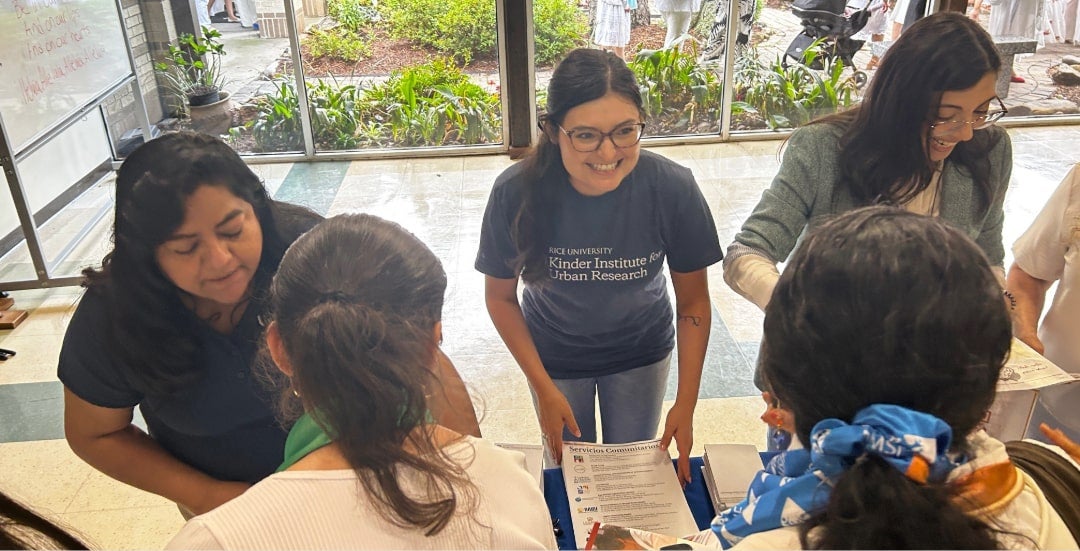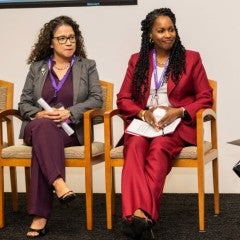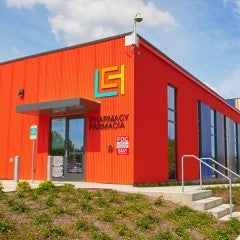So what if researchers took the next step and conducted research with the people facing these challenges to gain a deeper understanding of their lived experiences and the context shaping their health?
This process, known as community-engaged research, could be the key to improving conditions for mothers in their own neighborhoods and addressing local challenges.
Community-engaged research has become especially prominent in public health and the social sciences, offering a powerful way to address disparities in health and related nonmedical drivers of health outcomes. In maternal health, community engagement fosters meaningful collaboration, enabling communities and researchers to co-create solutions from the ground up. By building trust and strong partnerships, this approach lays the foundation for lasting change.
Research conducted about people has revealed many insights. For example, in neighborhoods with limited health care access, mothers and their children often experience increased health risks and pregnancy-related complications. In Texas, nearly 9 in 10 pregnancy-related deaths are preventable, and maternal mortality rates in Harris County exceed the national average.
But now, community-engaged research is at the heart of several new initiatives in the Center for Community and Public Health at the Kinder Institute for Urban Research, including “Paths to Wellness,” a project funded in part by the Simón Bolívar Foundation aimed at improving maternal health in priority neighborhoods.
The process began with community-building, establishing a network of more than 20 local organizations, institutions and health care facilities. The Center for Community and Public Health engages these community members as long-term partners, demonstrating a genuine commitment to the well-being of both the organizations and the populations they serve.
Many organizations have limited resources, so building trust and maintaining mutually beneficial partnerships are essential to ensure community members are invested in the research process and that their input is valued.
This group, known as a community advisory board (or CAB), is engaged at every stage of the research process, and its impact has been transformative. Through site visits, community events and ongoing dialogue, we are learning about each organization’s missions, goals and strengths. These connections not only help researchers stay grounded in the partners’ day-to-day challenges and priorities, but they also create opportunities to collaborate on broader public health efforts.
At the CAB’s first meeting in February, members emphasized the importance of community needs driving resource allocation, increasing access to effective services and ensuring culturally responsive care — insights that are now guiding our project’s research priorities.
While the research project is focused on delivering key components, such as a community health needs assessment and a strategic plan, it continues to adapt to evolving needs. For example, our partners identified that mothers needed greater awareness and access to local resources. That led to the development of a resource directory that offers a user-friendly, structured way for mothers and families to easily find and access relevant support across the Greater Houston area.
Community members have helped expand partnerships to local charities, churches, school districts and mobile health service units. They have also identified critical community resources and promoted a strengths-based approach that empowers mothers and their families. By including and listening to those most impacted, researchers gain a wider view beyond immediate research questions and the health sector overall, situating maternal health within a larger social, cultural and structural context.
Our community partners also recognize how the project supports and enhances their own work. One member shared that insights from the project “will help build a systematic way of helping both clients and staff, many of whom are community members.” Another member noted that better understanding needs would allow them to “learn how to advocate for their clients, especially high-risk clients, while also respecting their boundaries,” particularly with regard to cultural nuances.
Despite ongoing efforts to improve maternal health, critical knowledge gaps remain in understanding the specific barriers faced by mothers in priority neighborhoods. Challenges such as inadequate prenatal care, limited mental health support and inequities in health care access persist, highlighting the need for targeted interventions.
At the same time, factors that shape maternal well-being in these communities, including the existing availability or lack of support systems and essential resources, remain underexplored. These gaps point to the need for approaches that are not only data-informed but also rooted in lived experience.
By prioritizing real-world experiences at every stage of the research process, researchers and community members become co-creators of knowledge, shaping solutions that are evidence-based, culturally responsive and sustainable. Community-engaged research presents an opportunity for policymakers, organizations and institutions to partner with us to build a healthier, more equitable Houston and beyond.



